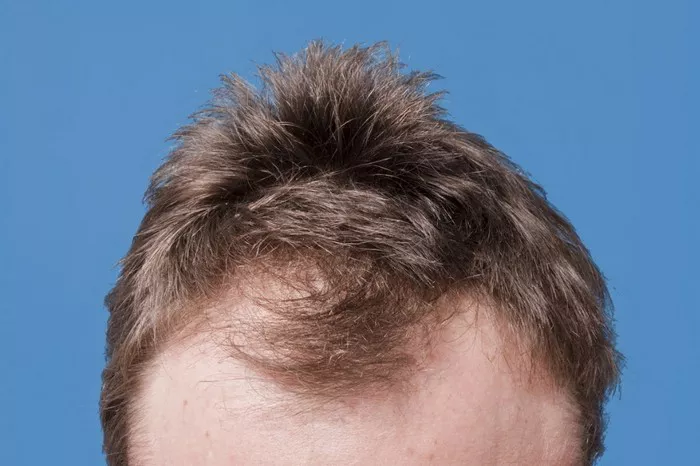Dengue fever is a mosquito-borne viral infection that affects millions of people around the world each year. While the physical and immediate effects of dengue fever are widely discussed, there’s an aspect that often remains unaddressed—hair loss. Post-dengue hair loss can be distressing for those who experience it, but understanding the condition and its timeline can provide much-needed reassurance. In this article, we’ll delve into the intricacies of how long hair loss lasts after dengue fever, potential reasons behind it, and strategies to manage this temporary phase.
What is the impact of dengue fever?
Dengue fever, caused by the dengue virus transmitted through mosquito bites, can have a significant impact on individuals and communities. Symptoms range from mild fever, headache, and joint pain to severe dengue (also known as dengue hemorrhagic fever) with bleeding, organ impairment, and even death. Dengue fever imposes a burden on healthcare systems, particularly in regions with high mosquito prevalence. Outbreaks can strain resources and affect economies through lost productivity. Preventive measures like mosquito control, using insect repellents, and eliminating breeding sites are crucial to curbing the spread of dengue and reducing its impact.
What are the sequelae of dengue fever?
Sequelae of dengue fever are long-term effects or complications that can occur after recovering from the acute phase of the illness. These can include:
1. Post-Dengue Fatigue Syndrome:
Prolonged fatigue and weakness that can persist for weeks or months after recovery.
2. Joint Pain:
Arthralgia or joint pain can continue for an extended period, affecting mobility and quality of life.
3. Organ Damage:
Severe dengue can lead to organ impairment, particularly the liver and heart.
4. Hematologic Abnormalities:
Blood clotting issues and low platelet count might persist.
5. Neurological Manifestations:
Rarely, neurological complications like encephalitis can occur.
Individual experiences vary, and proper medical attention, follow-up care, and a healthy lifestyle are important to minimize these potential sequelae.
The Link Between Hair Loss and Dengue Fever
Hair loss is a potential side effect of dengue fever, and it typically occurs about two to three months after recovering from the acute phase of the illness. This delay can be puzzling for those who haven’t connected the dots. The hair loss phase usually lasts for a few months and gradually resolves on its own. It’s important to understand that hair loss is a delayed reaction, and the body’s response to the virus contributes to this phenomenon.
Factors Affecting Hair Loss After Dengue Fever
Hair loss after dengue fever can occur due to several factors, including:
1. Stress on the Body:
Dengue fever is a taxing illness that places significant stress on the body’s immune system. This stress can disrupt the natural hair growth cycle, pushing a larger number of hair follicles into the resting phase, known as the telogen phase. This results in increased hair shedding.
2. Nutritional Imbalances:
During dengue fever, the body’s nutrient requirements change to support recovery. This can lead to temporary deficiencies in vitamins and minerals necessary for healthy hair growth, such as vitamin D, biotin, and zinc.
3. Hormonal Fluctuations:
The hormonal fluctuations that occur during and after dengue fever can influence the hair growth cycle. Hormones like cortisol, which are released in response to stress, can impact hair follicle health.
Managing Post-Dengue Hair Loss
Managing post-dengue hair loss requires a holistic approach that supports overall health and hair regrowth. Here are some strategies:
1. Balanced Nutrition
A well-rounded diet rich in essential nutrients can significantly aid in minimizing hair loss. Focus on including protein sources, fruits, vegetables, and whole grains in your meals. Consult a healthcare professional to ensure you’re meeting your nutritional requirements.
2. Stay Hydrated
Proper hydration supports overall health, including hair health. Drinking adequate water helps maintain the body’s functions and contributes to healthier hair growth.
3. Gentle Hair Care
During the period of hair loss, it’s wise to treat your hair with care. Avoid harsh chemicals, excessive heat styling, and tight hairstyles that can further stress the hair follicles.
4. Consult a Professional
If you’re concerned about hair loss after dengue fever, consider consulting a dermatologist or a healthcare provider. They can assess your specific situation and recommend appropriate treatments or supplements to support hair regrowth.
5. Be Patient
The key takeaway is patience. Hair loss after dengue fever is temporary and part of the body’s response to the stress it endured during the illness. With time, as the body regains its balance, hair growth will resume and gradually restore your hair’s volume and thickness.
Conclusion
Experiencing hair loss after dengue fever can be disheartening, but understanding the reasons behind it and the expected timeline can provide solace. The delayed onset of hair loss and its connection to the body’s response to the virus highlight the intricate relationship between health and hair. By prioritizing a balanced diet, hydration, gentle hair care practices, professional guidance, and patience, individuals can navigate through this phase with confidence. Remember, your hair’s resilience matches your body’s ability to recover, and soon enough, you’ll witness the return of healthier, fuller locks.


